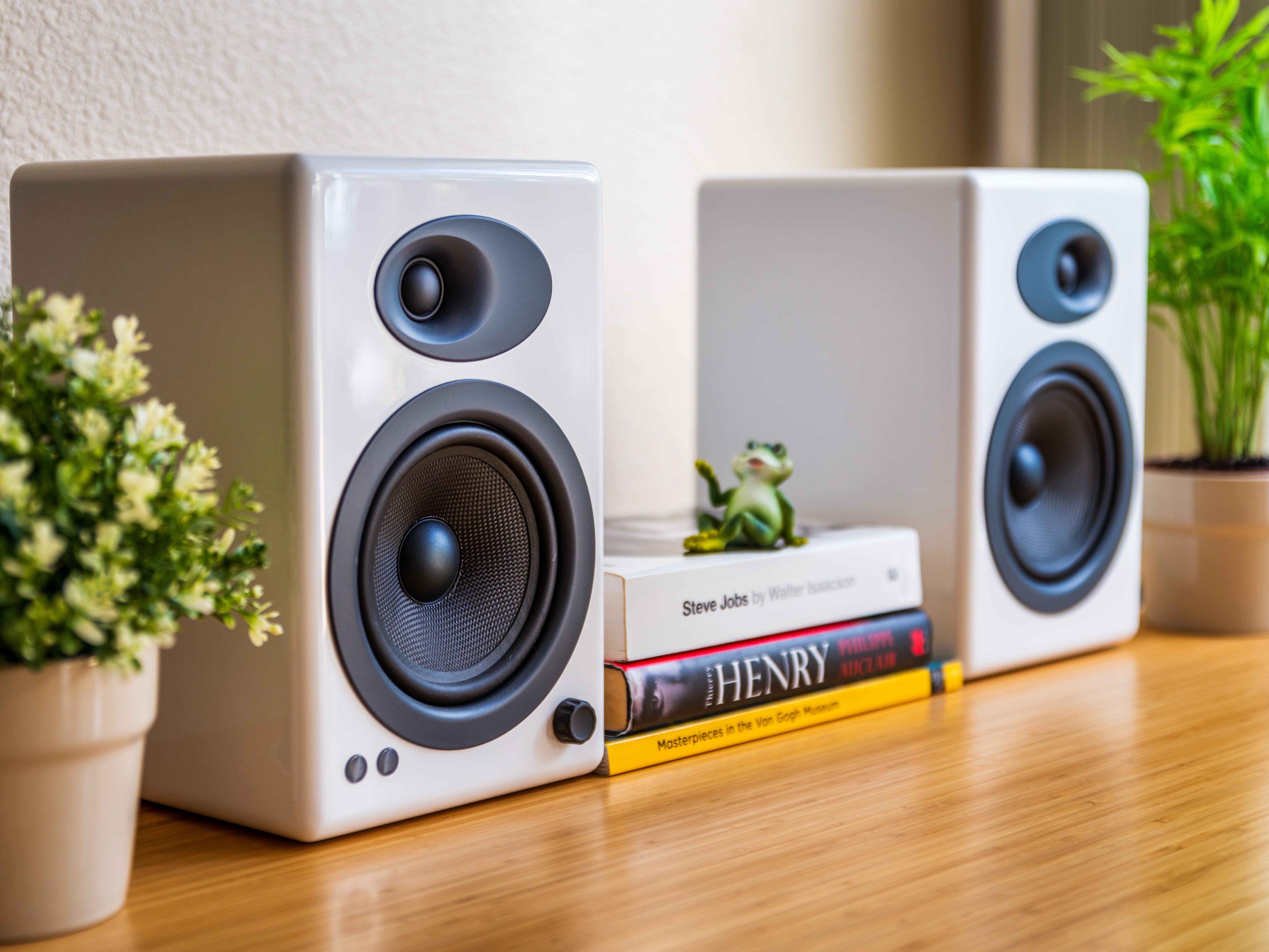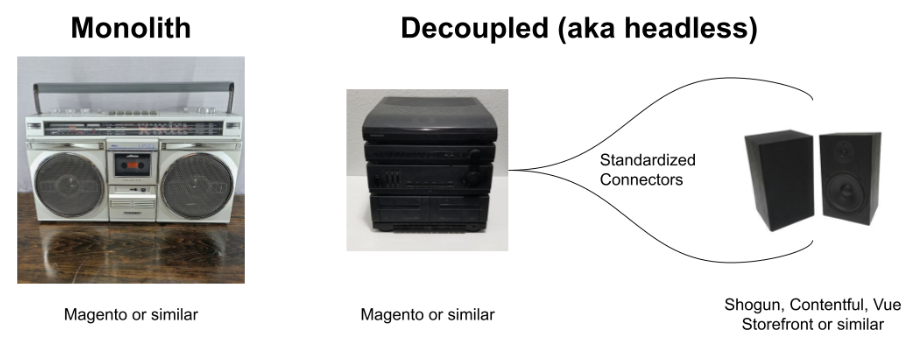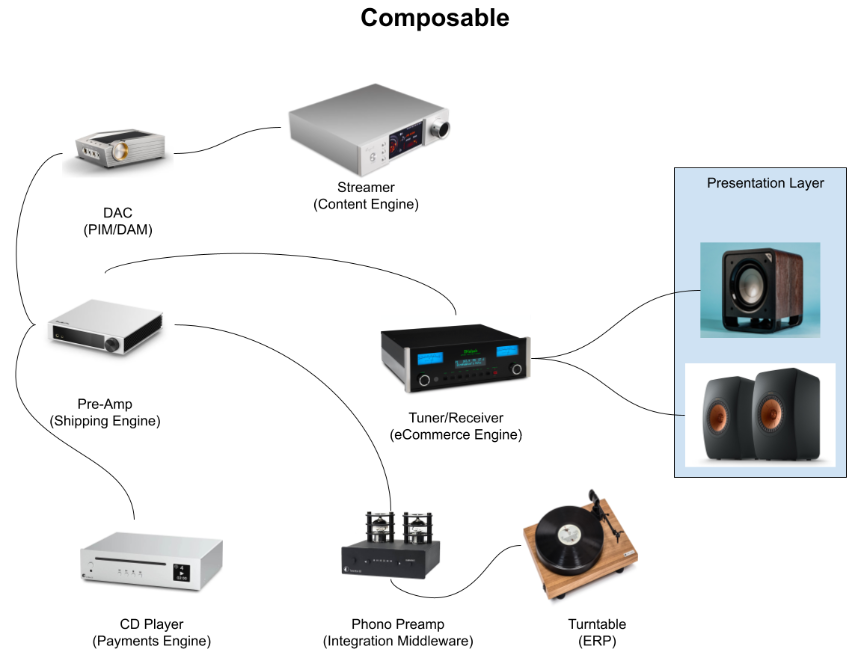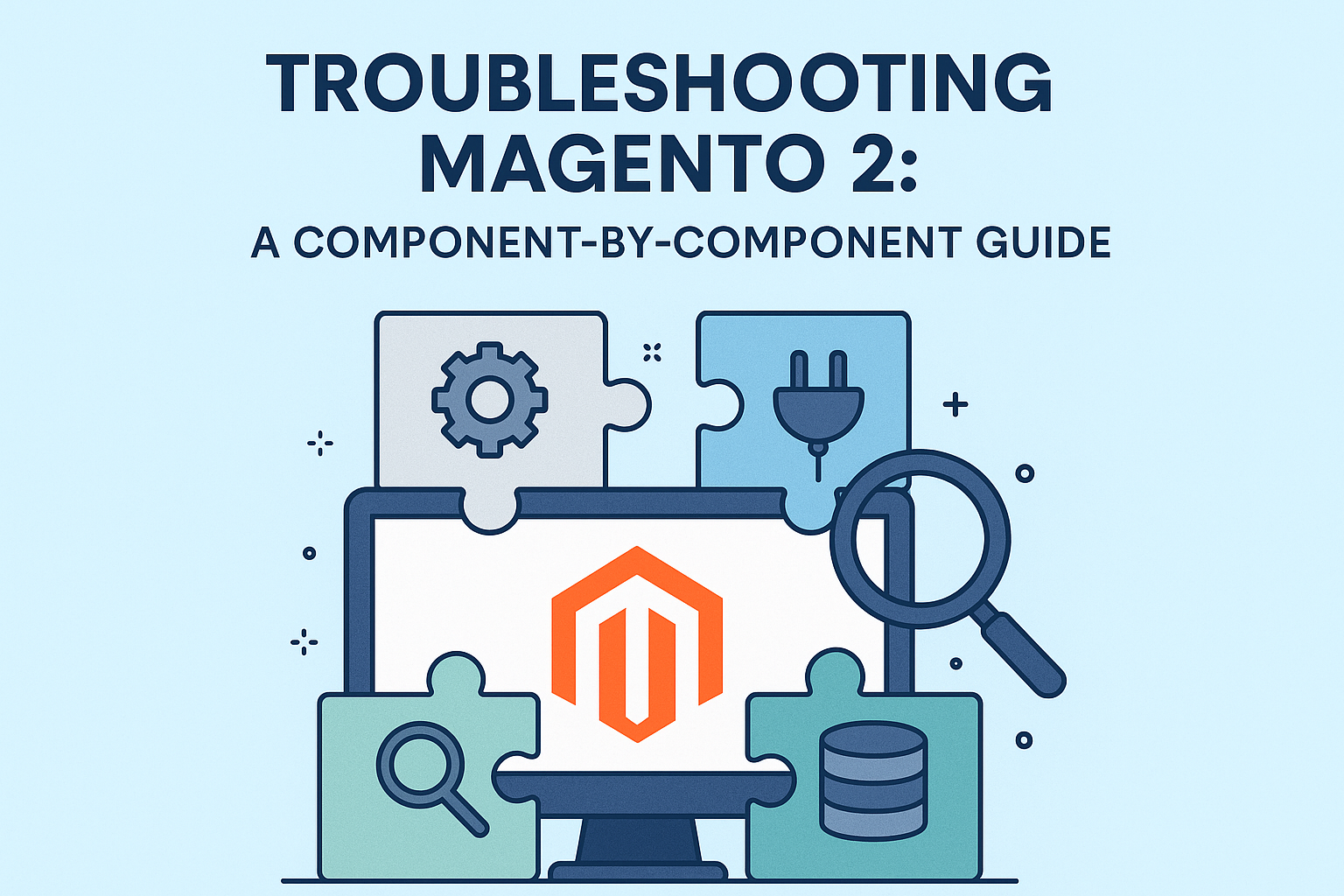Comparing Adobe Magento Open Source vs Magento Commerce
Want more traffic and online revenue? Comparing Adobe Magento Open Source vs. Magento Commerce. Which platform is right for your eCommerce store?
2 min read
 Tim Bucciarelli
:
November 21, 2022
Tim Bucciarelli
:
November 21, 2022

I think about eCommerce a lot. I managed an eCommerce business for about 10 years, and now as Director of Engagement for IronPlane, I help businesses find the eCommerce solutions best suited to their needs.
If you’re like me and you think about eCommerce a lot too, you’ve likely heard the term “headless eCommerce” or perhaps even “composable commerce.” And if you’ve really been listening, you’ve heard these two terms often used in contrast to “monolith” solutions.
When I first encountered those terms, I was confused — the term headless didn’t accurately reflect what it actually meant. I still feel this term should be thrown out and should be replaced with “decoupled” eCommerce. So with that in mind, I’ll do my best to use the term decoupled in this article rather than headless.
I’ve recently been researching HiFi stereo equipment, and I was struck with some similarities between eCommerce setups and stereo equipment setups. I like using analogies and metaphors to help me better understand complex ideas, so I’m going to frame this article about decoupled and composable eCommerce in terms of stereo setups.
To start, let’s look at the monolithic stereo system and the decoupled stereo system.

Think of the Magento monolith as your 1980s boom box. It has everything you need to enjoy your favorite Bon Jovi tape or tune into WBCN if that’s more your speed. Simple and effective - but you get what you get. Without a skilled audio engineer, there’s no easy way to plug in a different tape player or tuner if you’re looking for a more bespoke sound.
If you decouple the speakers (in eCommerce, this is the “presentation layer”), you’d have a bit more flexibility in system design. You can choose the core functionality of your stereo and pair that with speakers that give you a more unique, customized sound signature. The beauty is that if one day, you want to swap out your old speakers with a newer set (better soundstage perhaps?), you can keep the same stereo system and simply plug in a new set of speakers. This is at least in part some of the same logic behind the decoupled eCommerce design - you can swap in a new presentation layer and connect it to the same eCommerce engine without too much hassle.
If we expand this stereo design into a more component-based system, there are numerous ways to build your system. The more components, the more complexity, but if it’s well-designed and implemented with the right connections, you’ll get better results. This image is just one possible way of implementing a component-based stereo system:

There are parts of this image that are not quite right in terms of metaphoric accuracy (not to mention stereo system design), but I think it captures the essence of the composable idea. With this flexibility, you can build a fully custom solution with best-in-breed technology components and connect them to each other. Ultimately, you produce a unified experience that far surpasses what you could achieve with a monolithic system.
In stereo design, each component has its own technical specifications that pair well or poorly with other components. Some use proprietary connections, each has its own power needs, and the interconnecting cable quality alone can take up an entire article of its own. These connectivity factors are similar to what would be expected in a composable eCommerce design.
It is also true in both eCommerce and stereo systems that the more complex your design, the more likely you are to need the help of a skilled designer and engineer to put it all together. Those experts can ensure you are investing in the right equipment with the right compatibility to make the most of each component — all while satisfying your particular needs.
IronPlane cannot help you design your next stereo system. But IronPlane can help you design and implement your next eCommerce system. Whether you choose monolith, decoupled, or composable, our team of skilled eCommerce professionals can guide you to the best solution for your needs.

Want more traffic and online revenue? Comparing Adobe Magento Open Source vs. Magento Commerce. Which platform is right for your eCommerce store?

We compare top companies for Magento development services — including important factors to consider — so you can find the right dev partner.

Troubleshoot Magento 2 issues faster with this component-by-component guide to DI, plugins, search, logging, and config inconsistencies.